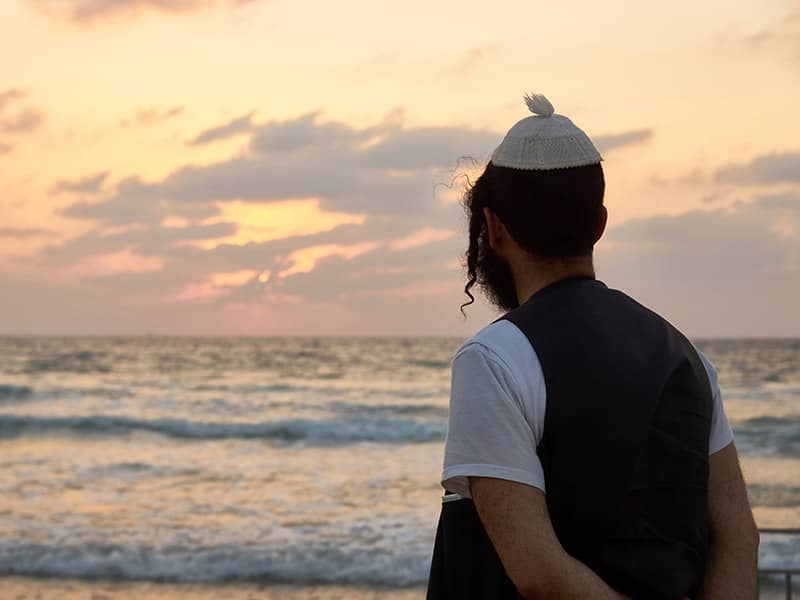 |
 |
 |
 |
|
|||
 |
Out of this whole mix of topics, I am particularly fascinated by the Torah's description of the upstarts who cannot participate in the paschal offering at the time when Passover occurs. These people dare to ask Moses and God for a new ruling that will include them in the sacrificial rites. The pertinent passage begins with general instructions to the Israelites to bring the Passover sacrifice. The instructions last for two verses, and their main theme is the importance of the timeliness of the offering: "And the children of Israel shall bring the paschal offering in its proper time. On the 14th day of this month, in the afternoon, they will do it in its proper time, according to all its laws and statutes they will do it" (Numbers 9:2-3).
The Torah is obviously very specific about the time in which the Passover sacrifice must be brought. Yet, four verses later we find that there are some people who cannot bring the offering on the appointed day because they are ritually impure. They approach Moses and Aaron and posit the following query: " . . .we are ritually impure, why should we lose out and not be able to bring God's offering in its appropriate time within the people of Israel?" (Numbers 9:7).
The well-known commentator Rashi quotes a midrash from Sifrei that explains that Moses should have received the laws regarding the second-opportunity Passover (Pesach Sheni in Hebrew) right from the start. Yet the questioners merited having the law taught in explicit response to their question because of the great merit of their inquiry. ("Merits accrue to the meritorious," as Rashi puts it.) The questioners' great desire to participate in this mitzvah (commandment)--and their refusal to believe that they could be excluded from it--are seen as a model of religious expression. It takes a great deal of courage to believe so firmly in one's religious rights that one is willing to challenge Moses and God.
It is also interesting that this question arises regarding the Passover sacrifice. After all, circumstances could prevent a person from keeping Shabbat, but no one suggests observing Shabbat on Tuesday. A person could be ill and unable to sit in a sukkah--temporary hut--during the holiday of Sukkot (The Festival of Booths), but there is no second observation of Sukkot. Passover, though, stands out as a symbol of national identity. The original Passover sacrifice, offered in Egypt, was the ultimate sign of the Israelites as a people apart. They painted the blood of the sacrifice on their doorposts as a way of demarcating their homes from their Egyptian neighbors. When the questioners come forward in this week's Torah portion, they specifically want the opportunity to bring the Passover sacrifice "within the people of Israel" (Numbers 9:7). Even if they cannot bring the sacrifice at the same time as the rest of the nation, they want to take part in this national celebration. God's immediate, inclusive response is a tribute to this impulse toward greater religious and national participation.

